Do Energy Drinks Cause Kidney Stones?
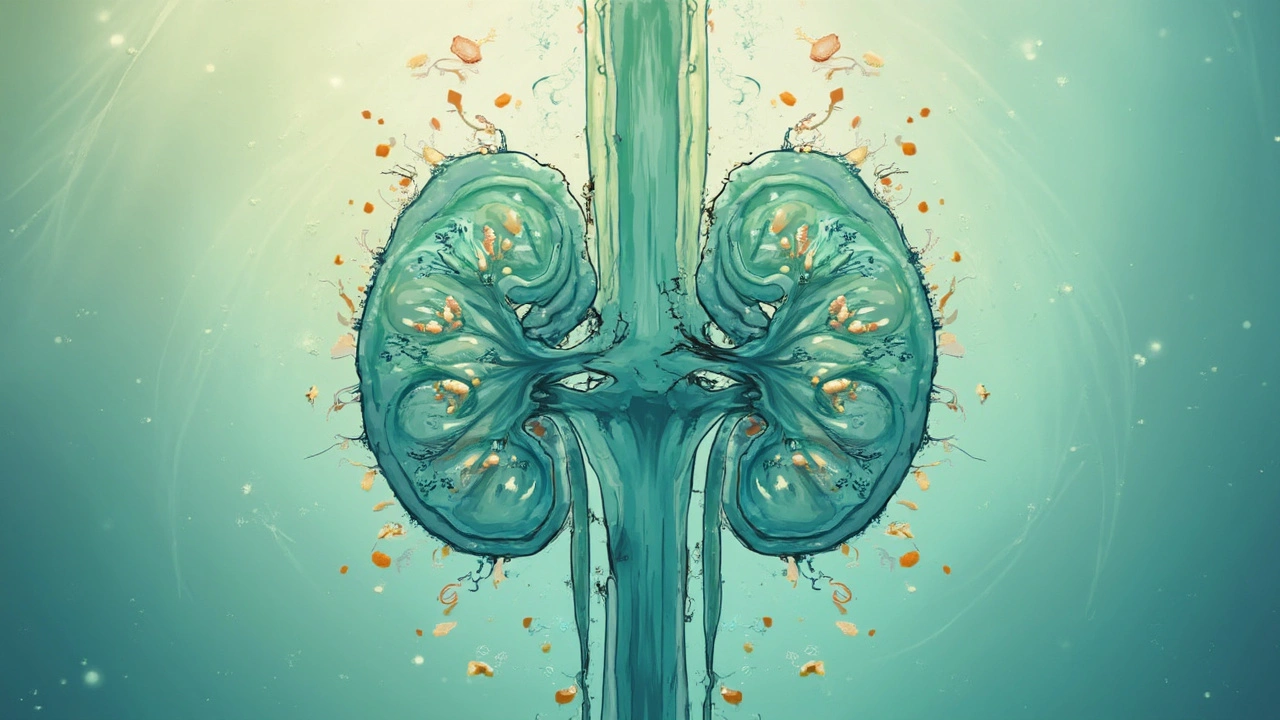
Ever cracked open a can of energy drink, hoping for a magical burst of vitality? You're not alone. But before you reach for another can, you might want to know what some people are buzzing about: can energy drinks mess with your kidneys? Let's jump into the fizzy world of energy drinks and see if there’s any truth to these concerns.
First off, what's in these drinks? Most energy drinks are loaded with caffeine, sugar, and a cocktail of other ingredients like taurine and ginseng. While these can give you that much-needed boost, they might also stir up a bit of drama in your kidneys.
Unpacking Energy Drinks
You've probably seen them everywhere—from your local grocery store to the gym vending machine. Energy drinks are a convenient pick-me-up when you're feeling drained, but what's really inside these cans? Let's take a detailed look under the hood.
Most energy drinks are brimming with caffeine, which is the main ingredient responsible for that alert feeling. But it's not just caffeine that powers these bubbly concoctions. Sugar is another big player, often in hefty amounts, providing quick energy but also potential long-term downsides, like weight gain and blood sugar spikes.
Caffeine is well-known for its ability to jump-start your day, but when it comes to your kidneys, too much of a good thing might not be great. High caffeine levels can increase calcium in the urine, which in turn, plays a role in forming those pesky kidney stones.
Beyond caffeine and sugar, energy drinks often contain a mix of other ingredients like taurine, B vitamins, and ginseng. Each adds a little something to the mix, claiming various benefits like improved focus and endurance. However, the effects of these ingredients, especially in combination, aren't fully understood.
It's crucial to know what goes into these drinks because they aren't all created equal. Some have modest caffeine content, similar to a cup of coffee, while others are supercharged with two or three times that amount.
Here's a quick snapshot to give you an idea of typical caffeine amounts in popular energy drinks:
| Energy Drink | Caffeine (mg) |
|---|---|
| Brand A | 80mg |
| Brand B | 160mg |
| Brand C | 240mg |
It's essential to check the labels and be aware of what you're consuming, especially if you're prone to health issues like kidney stones or are sensitive to caffeine.
In a world where energy drinks are everywhere, knowing what's inside and how it might affect your body is your best bet to sip smarter.
Kidney Stones 101
You know how you sometimes forget to drink enough water during the day, and your body lets you know with a headache or dry skin? Well, your kidneys have their own way of throwing a temper tantrum: kidney stones. They’re these pesky little rocks that form inside your kidneys when minerals get all clumped up.
So, what exactly are these stones made of? Most are calcium-based, but stones can also contain other substances like uric acid. If you’ve been eating a protein-rich diet, that uric acid can build up pretty fast. Less common types include struvite stones, often related to urinary infections, and cystine stones, which are genetic.
If you’ve ever passed a kidney stone, you know it’s no joke. It feels like a battle between a rock and a hard place, and your body is caught in the middle. Symptoms can range from severe pain, blood in your urine, to nausea and vomiting.
But why do they even form in the first place? Factors like dehydration, certain diets, and yes, even energy drinks, play a role. When you don't drink enough water, urine becomes concentrated, making it easier for minerals to crystallize and form stones. Which brings us to our curious case of energy drinks.

Caffeine and Kidney Health
Alright, let's pull back the tab on caffeine. This ingredient is the star of the show in energy drinks. We love that kick, but is caffeine really shaking things up in the kidneys?
In short, caffeine is a diuretic. This means it makes you pee more, and that can actually lead to dehydration if you're not chugging enough water. Why does this matter? Well, staying hydrated is key to keeping kidney stones at bay. If your urine gets too concentrated, it can turn into a breeding ground for stone formation.
Here's a cool bit of info: about 85% of people in Australia drink at least one caffeinated beverage a day. Now, that doesn't mean they're all running into kidney issues, but it's a reminder of how common caffeine is in our diets.
So, how much caffeine is safe? Health experts generally suggest sticking to under 400 mg of caffeine daily. That's roughly the amount in four cups of coffee or about four cans of your average energy drink. Overdoing it not only cranks up the chance of dehydration but can also mess with your heart and make you jittery.
While we’re on the topic, it's worth mentioning that caffeine isn't the only thing to watch. Energy drinks often throw in a hefty dose of sugar, which brings its own set of health quirks. Balancing your caffeine intake with plenty of water might just be the easiest way to keep both your energy levels and kidneys happy!
Tips to Stay Stone-Free
Your kidneys do a lot of heavy lifting, keeping your body balanced and happy. But if you're hooked on energy drinks and worried about kidney stones, there are a few things you can do to protect those hardworking organs.
First up, hydration! Water is your best friend here. Aim to drink at least 8 glasses a day to help flush out your system. It’s like giving your kidneys a little spa day.
- Balance Your Drinks: If you’re indulging in energy drinks, keep them in check by matching each can with an extra glass of water. Diluting the effects can go a long way.
- Watch Your Caffeine: Keeping an eye on your overall daily caffeine intake helps. Most experts suggest sticking to under 400 mg a day. That’s like three or four cups of coffee max. Too much caffeine can jumble up calcium in your kidneys, leading to stones.
- Mind the Sugar: We all know a high sugar diet isn’t great, but it might surprise you that it’s also linked to stones. Consider swapping a sugary drink for a low-sugar option when possible.
- Diet Matters: Snack on citrus fruits. They contain citrate, which naturally breaks down kidney stones.
And a quick reminder: if you're worried about kidney stones or feel any discomfort, a chat with your doctor is always a good plan. They’ll have the best advice tailored just for you.
So, next time you reach for an energy drink, remember these tips. Your kidneys will thank you!


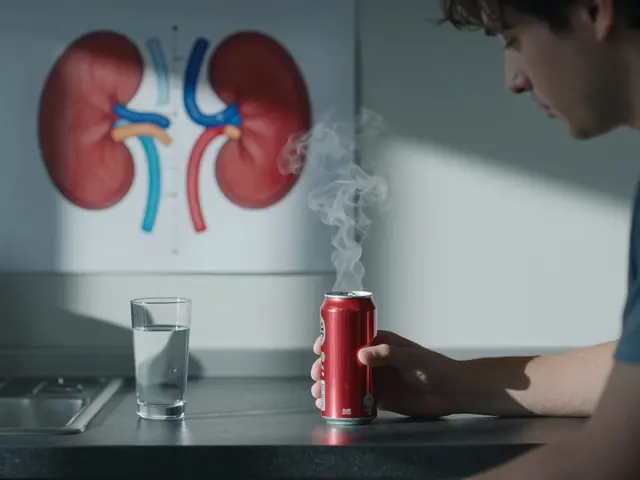
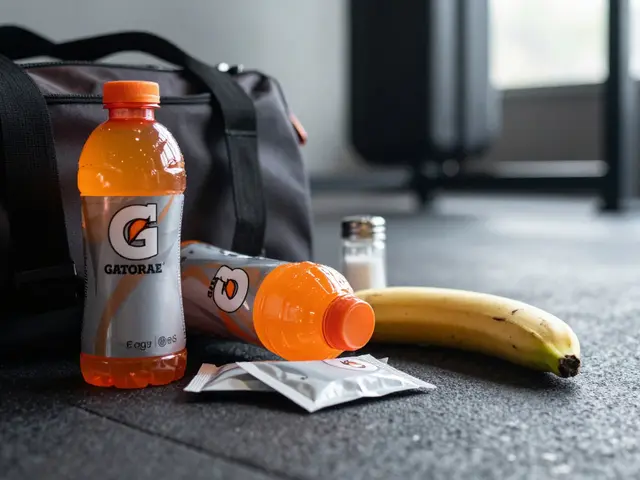
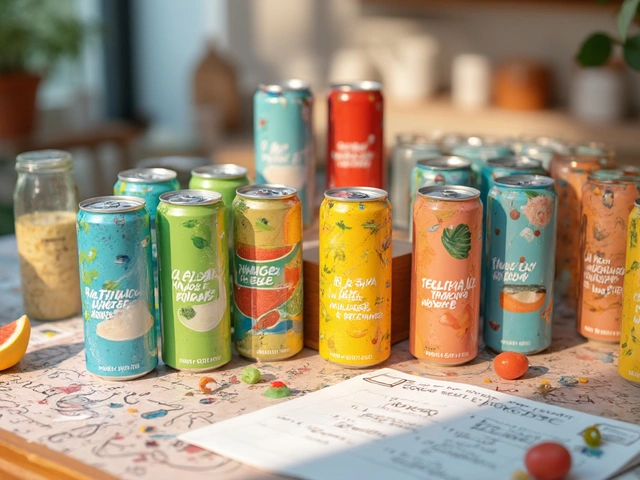
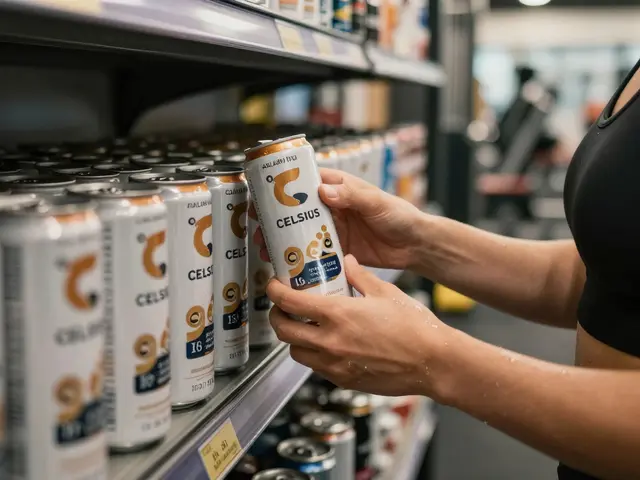
Comments (10)
Kendall Storey
18 Jul 2025
Alright, let's cut to the chase. Energy drinks aren't just about caffeine; it's the combo of caffeine, sugar, and other additives that really mess with your kidneys. Excess caffeine can ramp up calcium excretion in your urine, which spells trouble for stone formation. And those sugar levels? Oh boy, they can cause dehydration and thus concentrate minerals, making it easier for stones to form.
But it ain't all doom and gloom. Timing and moderation are key. You're not necessarily doomed if you occasionally sip an energy drink. Just know your body's limits and stay hydrated with water too — counterintuitive, right?
Does anyone here track their intake or have personal experience with this? Curious what strategies work best for you folks who love your energy buzz but also want to keep your kidneys intact.
Sandy Pan
18 Jul 2025
It's interesting to consider how our modern cravings—quick energy boosts—might lead us unknowingly toward health issues like kidney stones. I can't help but think about the delicate balance the kidneys hold and how quickly we disrupt it with processed stimulants.
Do you think these drinks symbolize a broader societal impatience and the desire for instant gratification? Perhaps our kidneys rebel not just because of caffeine or sugar but because we neglect the slower, natural rhythms our bodies thrive on.
Let’s not forget the importance of hydration, which seems almost a lost art, replaced by these aggressive artificial stimulants.
Yashwanth Gouravajjula
18 Jul 2025
In India, energy drinks are becoming popular among youths for late-night studies and work. But I have heard many say that overconsumption causes kidney issues. This article is timely.
The focus on caffeine and sugar’s role in stone formation is crucial. Should we also consider local dietary habits which might compound risks? For example, consuming less water or more salt along with these drinks might increase the problem.
Maybe public awareness campaigns about the risks of energy drinks on kidneys are necessary in many countries.
Rae Blackburn
18 Jul 2025
Honestly? I’m kinda freaking out now lol! These energy drinks are literally everywhere, in every corner store, at every gas station. So many people down them like it's water. Like, why wouldn’t this cause kidney stones? Has anyone looked into whether these companies are hiding something about the real long-term damage?
I swear, big corporations just keep pushing their sugary caffeine sludge on us while our bodies pay the price.
Seriously thinking about quitting caffeine altogether after reading stuff like this. Who else is paranoid about this?
Ashton Strong
18 Jul 2025
Thank you for raising this important topic. As someone who frequently consults on kidney health, I can say the correlation between energy drink components and kidney stone risk is significant.
Caffeine, a known diuretic, can cause dehydration if not balanced with adequate water intake, concentrating stone-forming solutes in urine. Excessive sugar intake contributes to metabolic disturbances that increase calcium and oxalate levels—key culprits in stone formation.
The best advice is clear: enjoy energy drinks sparingly and maintain hydration rigorously. Your kidneys will thank you.
King Medoo
19 Jul 2025
Honestly, I find it ludicrous how society glamorizes these energy-boosting beverages without emphasizing the moral responsibility of consumption.😤
Long-term damage to kidneys from reckless caffeine and sugar intake is a preventable outcome, yet we indulge in this toxic cycle because it's socially acceptable, even trendy.😡 The ignorance around the consequences is truly disheartening. We must advocate for better education and self-discipline.😤😠
For the sake of our health, people need to wake up and realize the price we pay is more than just a quick buzz.
LeVar Trotter
20 Jul 2025
I appreciate the insight here. Kidney stone formation is a multifactorial issue, and energy drinks contribute mainly through their high caffeine and sugar content, which alters urine chemistry.
What I find especially critical is raising awareness about hydration status because oftentimes people assume intake of fluid means consumption of any beverage. Energy drinks do not replace water. They can actually promote dehydration by virtue of their diuretic components.
It’d be ideal to see more community outreach programs tailored to educate young adults and heavy energy drink consumers about preventative habits. Does anyone have experience with such initiatives?
Tyler Durden
22 Jul 2025
Hey all, great thread! This topic struck a chord with me as I've been battling mild kidney stones for a couple of years now. Frankly, I never thought much about the role energy drinks might play until recently.
What really opened my eyes is how those sugary, caffeinated drinks spike your calcium excretion and mess with your hydration balance. I had assumed just cutting back water was my main call, but now I realize avoiding energy drinks altogether during stone episodes makes sense.
Does anyone else have tips on balancing energy needs with kidney health? I’m trying to find a sustainable middle ground.
Aafreen Khan
25 Jul 2025
lol everyone crazy about kidney stones but meh, drink whatcha want. I guess if u already have problem then maybe limit it? But for regular ppl these companies not totally evil they just making money in normal way so why stress so much?
Also, not every ingredient is bad all the time, it depends on person body and how much u consume. Drink smart, no need to go paranoid 😂
If this info scares ppl too much, then next time ppl will blame water for drowning 🙄
Pamela Watson
17 Aug 2025
Wow! This was so helpful! I mean I always thought energy drinks were just kinda bad, but didn’t realize their link to kidney stones was this direct. This explains a lot about my frequent dehydration and weird pains I ignored.
Honestly, I can’t stop drinking them completely, but maybe I’ll try replacing some with water or healthier alternatives. Anyone tried cutting back and noticed improvements?
Thanks for the useful tips and warnings! 😊